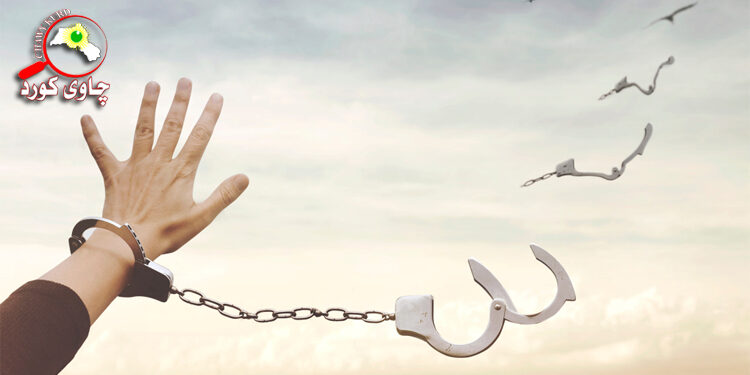Have you ever felt torn between two selves: one that wants to change and one who wants to stay the same? Of course, you have. Of course. You’re only human in the end. The question of free will has burdened many minds in history, and everyone thinks about it at certain points in our life.
If this question is so commonly asked, we can only assume it is a very important one to have an answer to. Today I woke up slightly hungover and decided that was a good time to get this done. What’s the worst that could happen? If you’re curious, read on my no doubt wise words on the topic.
There are many philosophical doctrines whose defenders tried to define free will, and find out if it exists as more than a theoretical concept. Sam Harris, a famous contemporary thinker on the topic, has written a masterful summary on free will in his short book dubbed, unsurprisingly, Free will. There he argues, and I’m paraphrasing here, that social influence and genetics mold who you are. What this means is that you live the life you were given, not the one you choose. And no, not even reading this article would free you from this curse because a) my own writing was not free for the same reasons, and b) if you do as I say, then you are just manipulated by moi. Sam Harris proposes you will never, ever, in a million years, have free will.
To his defense, he means well. He intended to get us to form a more humane society, where we are less judgmental of others, even hardened criminals: we should forgive them because they know not what they do, as another famous thinker once recommended. Suppose we all are simple products of an assembly line of genetics and social norms. In that case, we can only blame the upper management(call it God, call it nature) for creating so many fucked up people and still sending them like that out into the world, where they cause trouble for others while suffering themselves from their imperfections.
However, just because one very smart guy used some fancy logic to prove his point doesn’t mean that’s the end of the story. This would be a pretty disappointing article if I left it like that. It so happens that another smart guy called Mark Manson, best known for being a bestseller author in the personal development field, had a different idea about this. He wrote in a very illuminating blog piece that, according to the Buddhist philosophy, the human mind is not one thing, but at least of two natures:
1.The Thinking Mind, which Sam Harris refers to as the one having no free will (at the same time, for him, it is the only mind we possess), and
2.The Observing Mind, which is the actual self according to Buddhist thinking. The Observing Mind checks the Thinking Mind, like a manager, by observing reality and comparing it with the model by which the Thinking Mind operates.
When this concept first appeared, they didn’t have MRI and CAT scans. What got thinkers and monks back then wandering was why it can be challenging to make decisions and why we experience frustration.
Whenever you have a feeling that you should be doing something different, but you also feel powerless to do it, they figured this happens because your Thinking Mind wants to keep doing what it always does, but, at the same time, there’s a mysterious second self that thinks a change is needed based on what it observes. Because it takes a good sense of observation to determine the present reality before you can make a change, and because this second mind seems to keep always a watch on the Thinking Mind, that mind was called the Observing Mind(or the Watcher). The Observing Mind can see, for example, that you are fat and you need to exercise more or eat healthier. The Thinking Mind can’t always see that. It can just remember that you like chocolate and sitting on your ass all day. The Thinking Mind then comes up with reasons not to make the necessary changes to your lifestyle. You can grow frustrated with yourself when that happens too long or with too many things. Therefore, those thinkers concluded that there must be two minds: the one that is frustrated and the one that the other is frustrated about. What are the two selves? The answer is clear, I hope: It is the Observing Mind that is frustrated by the Thinking Mind.
As Sam Harris explained, the Thinking Mind is running a script, written in the letters of its DNA by parents and in the ones and zeros programmed in his robot brain by society and the natural environment. Buddhists believe that if left to do as it pleases, the Thinking Mind robs the body of freedom, it repeats mistakes, unable to change.
That’s when the Observing Mind comes in. You could never make a change to your life of your own will (not pressured by culture or genetics) if the Thinking Mind were all you are. The Observing Mind allows people to break patterns by showing them precisely what is happening now and questioning the first solution to a problem the mind offers. Think of it as financial audits. If a government doesn’t regularly check the balance sheet of taxpayers, what are the numbers NOW, they can wake up one day, as what happened to Greece, that it became bankrupt and has to take massive loans. In this analogy, the country is your body, the Government is your Observing Mind, and the taxpayers are, taken together, your Thinking and acting Mind. The two minds need to work together to keep your body healthy, safe and to live a happy life.
As Mark Manson puts it, the problem comes when you are unaware of the distinction between the two minds. Everyone possesses both, but when you identify solely with your Thinking Mind like Sam Harris appears to do in his writings, you run the risk of shutting down most of your awareness, and with it, free will and capacity to make good decisions.
What I want to propose to you in this article is this: whatever free will people do possess comes from being aware of what is going on NOW and choosing to act in novel and practical ways rather than always doing everything the same way, half-consciously. People can live without this kind of freedom, yes, but then they are slaves to other people and the randomness of events. Social scientists have consistently found that people who have a sense of control over their lives are happier than those who do not. If that’s true, then, if you choose to ignore your free will, if you act based not on a combination of observations and past experiences, but on past experiences alone, you will live an unhappy life.
There’s a slight hitch in my theory that you could think of: the Thinking Mind can and most often does obstruct the presence of the Observing Mind. Indeed, for most people reading this article, it is the first time they have heard about these two minds. And this happens because of how much our societies value people for their Thinking Minds. I will ask you to think of it like this:
Yes, ideas that harden into stereotypes and promote closed-minded thinking can indeed go viral. Just look at the mess on social media nowadays. However, the more people read articles like this or meet people who apply the idea of two minds to their own life, the more people will start thinking and acting that way. While that is like taking poison to fight poison, this can and does work. There’s a recent trend of people seeking answers to the confusion in their minds, and writers like Eckhart Tolle and Deepak Chopra have been teaching people to access this second Observing Mind for the past two decades. Mark Manson’s article I mentioned above also shows 3 practices that can help you. You can give them a try if you want to know more about how to achieve this.
If all this doesn’t sound right to you, that’s alright. What do I know about free will? In the end, these were the ramblings of a half-hungover man.





























































